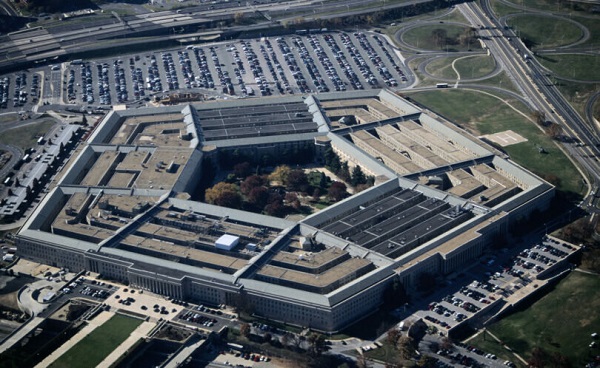Alberta
RCMP Major Crimes Unit investigate suspicious death – Adam Pearson still wanted

RCMP Major Crimes Unit investigate suspicious death – Adam Pearson still wanted
Grande Prairie, Alta. – The RCMP Major Crimes Unit are continuing to seek public assistance in locating Adam Pearson (26) who is wanted for the First Degree Murder of Cody Michaloski.
In October 2019, the Major Crimes Unit launched an investigation in the death of Cody Michaloski. The investigation led to first degree murder charges against Benjamin Pearson (25) who was arrested in Kelowna, and Adam Pearson, who has still not been located.

Adam Pearson
Alberta RCMP Major Crimes are asking the public’s assistance in locating Adam Pearson. It is believed that he may have tried to alter his appearance, including dying his hair. Pearson is known to have ties to the Toronto area, and throughout B.C. and Alberta. Information provided to date is that he uses Air B & Bs and hotel/motels, and might go by the nickname “Red”.
Please do not approach Pearson, but contact the Grande Prairie RCMP at 780-830-5701 or your local police, if you see him or know his whereabouts. If you wish to remain anonymous, you can contact Crime Stoppers at 1-800-222-8477 (TIPS), online at www.P3Tips.com or by using the “P3 Tips” app available through the Apple App or Google Play Store.
Background:
May 28, 2020
Alberta RCMP Major Crimes RCMP investigate suspicious death – Update #2
Kelowna, B.C. – Following a lengthy homicide investigation into the death of Cody Michaloski in October 2019, in Grande Prairie, Alta., Alberta RCMP Major Crimes executed two search warrants and an arrest warrant on May 27, 2020, in Kelowna, BC.
Benjamin Pearson (25) of Kelowna was arrested on May 27, 2020, in Kelowna. He is charged with the First Degree Murder of Cody Michaloski. Pearson’s arrest was made possible with the work of the South East District, Combined Forces Special Enforcement Unit – British Columbia (CFSEU-B.C.), and the assistance of, South East District RCMP Emergency Response Team and the Kelowna RCMP Forensic Identification Section.
Benjamin Pearson is awaiting his return to Alberta for a bail hearing into this matter before the Edmonton Provincial Courts at a date yet to be determined.
Alberta RCMP Major Crimes have also obtained an arrest warrant for Adam Pearson (26), whose whereabouts are unknown, for the First Degree Murder of Cody Michaloski.
Alberta RCMP Major Crimes are asking the public’s assistance in locating Adam Pearson. Please do not approach Adam Pearson, but contact the Grande Prairie RCMP at 780-830-5701 or your local police.
If you wish to remain anonymous, you can contact Crime Stoppers at 1-800-222-8477 (TIPS), online at www.P3Tips.com or by using the “P3 Tips” app available through the Apple App or Google Play Store.”
Further updates will be provide when additional information is available.
October 15, 2019
Grande Prairie RCMP investigate suspicious death – Update #1
Grande Prairie, Alta. – The adult male victim has been identified as Cody Michaloski (28) of Grande Prairie. Michaloski’s family has been notified. The Edmonton medical examiner completed an autopsy and determined the death to be a homicide.
Edmonton Major Crimes Unit continues to investigate this incident.
No further information is available at this time.
Oct. 13, 2019
Grande Prairie RCMP investigate suspicious death
Grande Prairie, Alta. – In the early morning hours of October 13, 2019 Grande Prairie RCMP responded to a residence in an apartment building on Poplar Drive.
On arrival the RCMP discovered the body of an adult male. RCMP Major Crimes has taken carriage of the investigation. The scene is secure and there is no concern for public safety.
Next of kin notification has been completed. No further details will be released at this time. The investigation is ongoing and an update will be provided once new information becomes available.
Anyone with information regarding this matter is asked to contact the Grande Prairie RCMP Detachment at 780-830-5700 or call your local police detachment. If you wish to remain anonymous, you can contact Crime Stoppers at 1-800-222-8477 (TIPS), online at www.P3Tips.com ( http://www.p3tips.com/ ) or by using the “P3 Tips” app available through the Apple App or Google Play Store.
Alberta
Alberta Premier Danielle Smith Discusses Moving Energy Forward at the Global Energy Show in Calgary

From Energy Now
At the energy conference in Calgary, Alberta Premier Danielle Smith pressed the case for building infrastructure to move provincial products to international markets, via a transportation and energy corridor to British Columbia.
“The anchor tenant for this corridor must be a 42-inch pipeline, moving one million incremental barrels of oil to those global markets. And we can’t stop there,” she told the audience.
The premier reiterated her support for new pipelines north to Grays Bay in Nunavut, east to Churchill, Man., and potentially a new version of Energy East.
The discussion comes as Prime Minister Mark Carney and his government are assembling a list of major projects of national interest to fast-track for approval.
Carney has also pledged to establish a major project review office that would issue decisions within two years, instead of five.
Alberta
Punishing Alberta Oil Production: The Divisive Effect of Policies For Carney’s “Decarbonized Oil”

From Energy Now
By Ron Wallace
The federal government has doubled down on its commitment to “responsibly produced oil and gas”. These terms are apparently carefully crafted to maintain federal policies for Net Zero. These policies include a Canadian emissions cap, tanker bans and a clean electricity mandate.
Following meetings in Saskatoon in early June between Prime Minister Mark Carney and Canadian provincial and territorial leaders, the federal government expressed renewed interest in the completion of new oil pipelines to reduce reliance on oil exports to the USA while providing better access to foreign markets. However Carney, while suggesting that there is “real potential” for such projects nonetheless qualified that support as being limited to projects that would “decarbonize” Canadian oil, apparently those that would employ carbon capture technologies. While the meeting did not result in a final list of potential projects, Alberta Premier Danielle Smith said that this approach would constitute a “grand bargain” whereby new pipelines to increase oil exports could help fund decarbonization efforts. But is that true and what are the implications for the Albertan and Canadian economies?
The federal government has doubled down on its commitment to “responsibly produced oil and gas”. These terms are apparently carefully crafted to maintain federal policies for Net Zero. These policies include a Canadian emissions cap, tanker bans and a clean electricity mandate. Many would consider that Canadians, especially Albertans, should be wary of these largely undefined announcements in which Ottawa proposes solely to determine projects that are “in the national interest.”
The federal government has tabled legislation designed to address these challenges with Bill C-5: An Act to enact the Free Trade and Labour Mobility Act and the Building Canada Act (the One Canadian Economy Act). Rather than replacing controversial, and challenged, legislation like the Impact Assessment Act, the Carney government proposes to add more legislation designed to accelerate and streamline regulatory approvals for energy and infrastructure projects. However, only those projects that Ottawa designates as being in the national interest would be approved. While clearer, shorter regulatory timelines and the restoration of the Major Projects Office are also proposed, Bill C-5 is to be superimposed over a crippling regulatory base.
It remains to be seen if this attempt will restore a much-diminished Canadian Can-Do spirit for economic development by encouraging much-needed, indeed essential interprovincial teamwork across shared jurisdictions. While the Act’s proposed single approval process could provide for expedited review timelines, a complex web of regulatory processes will remain in place requiring much enhanced interagency and interprovincial coordination. Given Canada’s much-diminished record for regulatory and policy clarity will this legislation be enough to persuade the corporate and international capital community to consider Canada as a prime investment destination?
As with all complex matters the devil always lurks in the details. Notably, these federal initiatives arrive at a time when the Carney government is facing ever-more pressing geopolitical, energy security and economic concerns. The Organization for Economic Co-operation and Development predicts that Canada’s economy will grow by a dismal one per cent in 2025 and 1.1 per cent in 2026 – this at a time when the global economy is predicted to grow by 2.9 per cent.
It should come as no surprise that Carney’s recent musing about the “real potential” for decarbonized oil pipelines have sparked debate. The undefined term “decarbonized”, is clearly aimed directly at western Canadian oil production as part of Ottawa’s broader strategy to achieve national emissions commitments using costly carbon capture and storage (CCS) projects whose economic viability at scale has been questioned. What might this mean for western Canadian oil producers?
The Alberta Oil sands presently account for about 58% of Canada’s total oil output. Data from December 2023 show Alberta producing a record 4.53 million barrels per day (MMb/d) as major oil export pipelines including Trans Mountain, Keystone and the Enbridge Mainline operate at high levels of capacity. Meanwhile, in 2023 eastern Canada imported on average about 490,000 barrels of crude oil per day (bpd) at a cost estimated at CAD $19.5 billion. These seaborne shipments to major refineries (like New Brunswick’s Irving Refinery in Saint John) rely on imported oil by tanker with crude oil deliveries to New Brunswick averaging around 263,000 barrels per day. In 2023 the estimated total cost to Canada for imported crude oil was $19.5 billion with oil imports arriving from the United States (72.4%), Nigeria (12.9%), and Saudi Arabia (10.7%). Since 1988, marine terminals along the St. Lawrence have seen imports of foreign oil valued at more than $228 billion while the Irving Oil refinery imported $136 billion from 1988 to 2020.
What are the policy and cost implication of Carney’s call for the “decarbonization” of western Canadian produced, oil? It implies that western Canadian “decarbonized” oil would have to be produced and transported to competitive world markets under a material regulatory and financial burden. Meanwhile, eastern Canadian refiners would be allowed to import oil from the USA and offshore jurisdictions free from any comparable regulatory burdens. This policy would penalize, and makes less competitive, Canadian producers while rewarding offshore sources. A federal regulatory requirement to decarbonize western Canadian crude oil production without imposing similar restrictions on imported oil would render the One Canadian Economy Act moot and create two market realities in Canada – one that favours imports and that discourages, or at very least threatens the competitiveness of, Canadian oil export production.
Ron Wallace is a former Member of the National Energy Board.
-

 International1 day ago
International1 day agoIsrael’s Decapitation Strike on Iran Reverberates Across Global Flashpoints
-

 Business2 days ago
Business2 days agoThe carbon tax’s last stand – and what comes after
-

 National2 days ago
National2 days agoCarney promotes MP instrumental in freezing Freedom Convoy donors’ bank accounts
-

 Business2 days ago
Business2 days agoTrump: ‘Changes are coming’ to aggressive immigration policy after business complaints
-

 illegal immigration2 days ago
illegal immigration2 days agoLA protests continue as judge pulls back CA National Guard ahead of ‘No Kings Day’
-

 International2 days ago
International2 days agoPentagon agency to simulate lockdowns, mass vaccinations, public compliance messaging
-

 conflict2 days ago
conflict2 days agoIsrael strikes Iran, targeting nuclear sites; U.S. not involved in attack
-

 Alberta1 day ago
Alberta1 day agoPunishing Alberta Oil Production: The Divisive Effect of Policies For Carney’s “Decarbonized Oil”






